ASTANA – In a landmark move, Kazakhstan is preparing to deploy its first independent peacekeeping contingent to the Golan Heights under the United Nations (UN). The departure of the contingent will take place in three stages, with the final slated for March 14, said Colonel Bauyrzhan Nigmetullin, the head of Kazakhstan Peace Operations Center (KAZCENT) of the Kazakh Ministry of Defense, in an interview with The Astana Times.
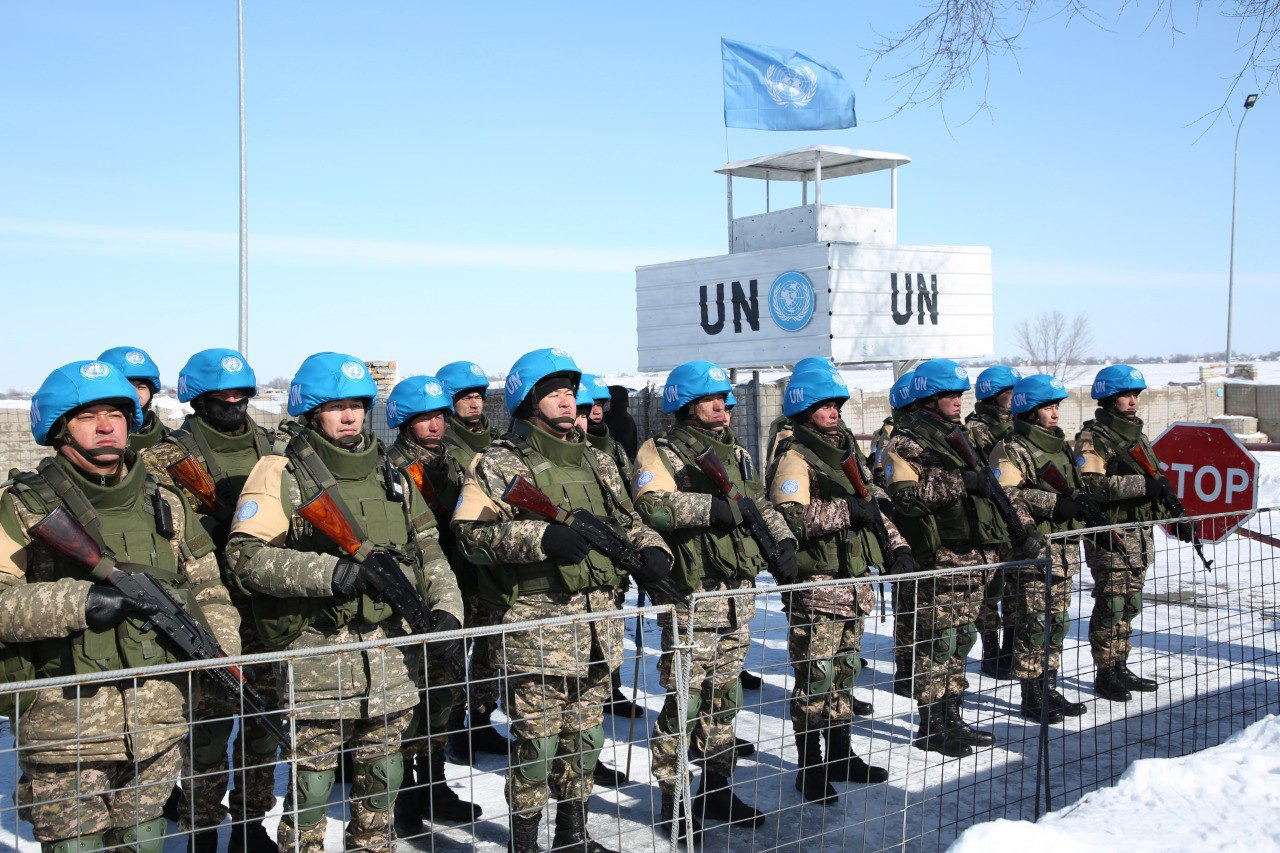
Kazakhstan’s blue helmets. Photo credit: KAZCENT
On Feb. 22, the first group of the contingent will be leaving for the Golan Heights through Damascus.
“It will be our frontier group, which will be supporting our logistical transportation. On the same day, our ammunition and equipment will be sent by railroad train to Aktau. From Aktau, there will be a commercial airplane [to Damascus],” said Nigmetullin, a former peacekeeper himself.
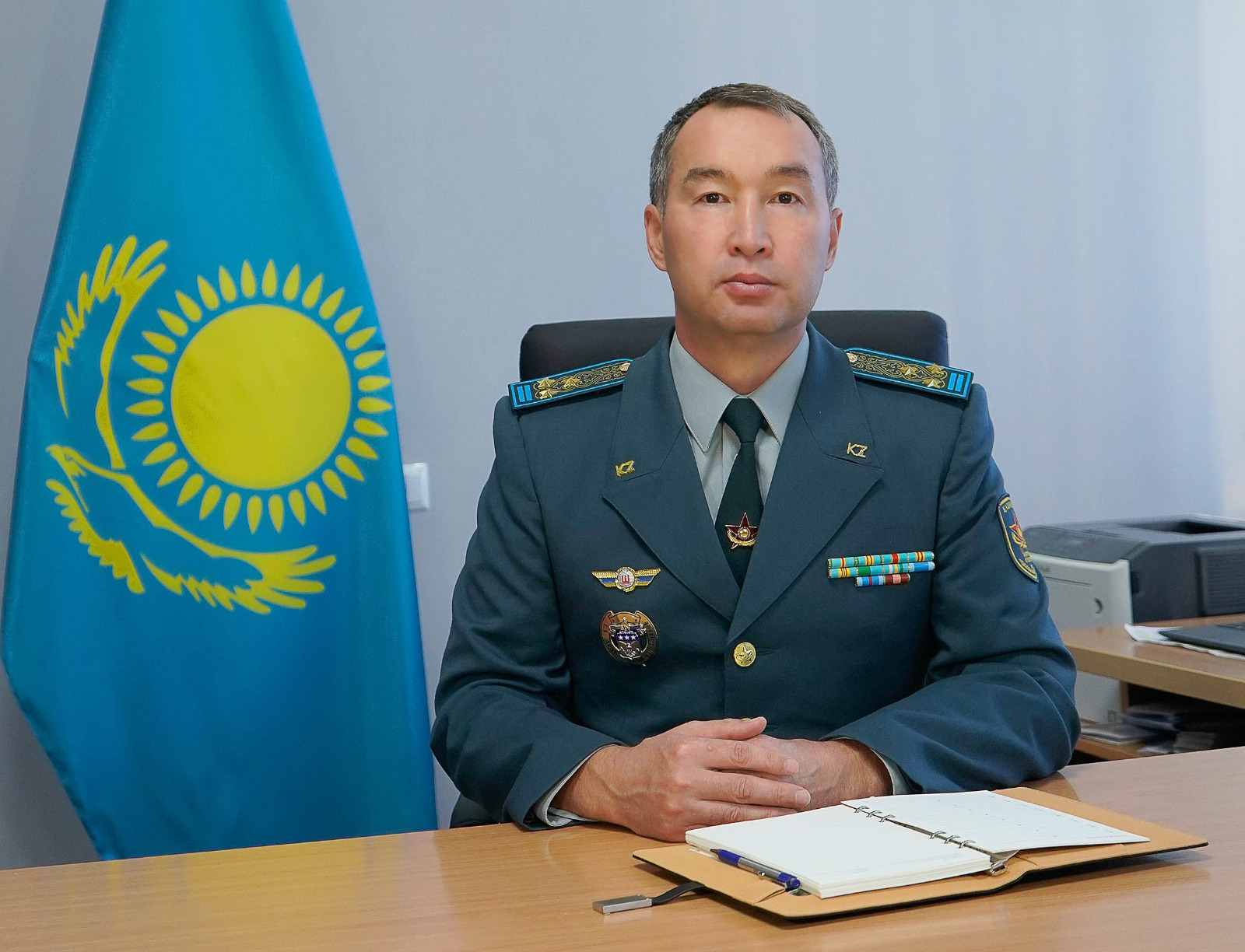
Colonel Bauyrzhan Nigmetullin. Photo credit: KAZCENT
On March 14, the Kazakh contingent will fly from Almaty to Damascus with a refueling stop in Aktau. From Damascus, the convoy, accompanied by a UN special unit and Syrian police, will arrive at its location, known as Camp Faouar.
The ministry provided the mission with modern military equipment in accordance with UN standards. The contingent has armored wheeled vehicles equipped with combat modules and the necessary life support equipment.
They also have KAMAZ trucks, high-traffic vehicles, and engineering equipment. One of the vehicles, converted for the evacuation of the wounded, is equipped with an oxygen apparatus, a defibrillator, medicines, and other medical equipment.
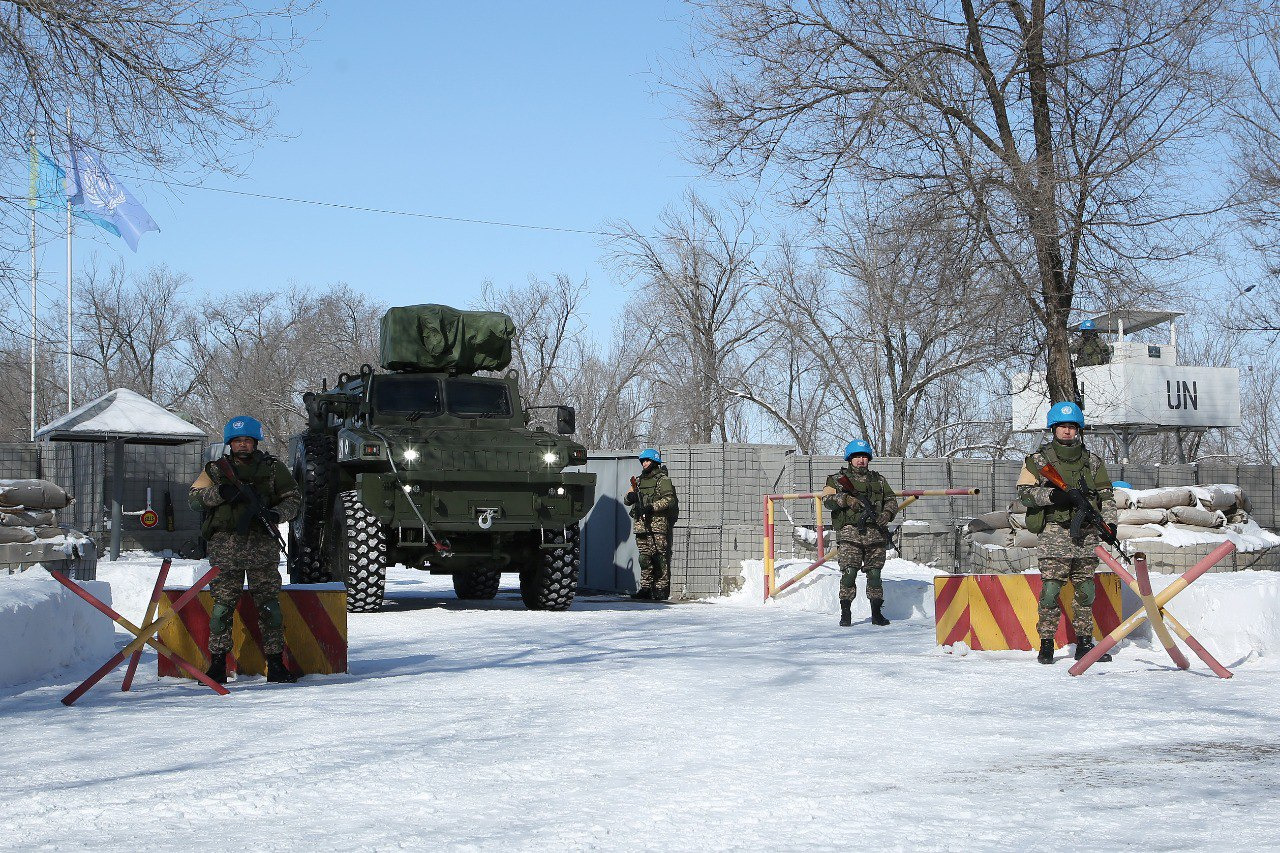
Kazakhstan’s peacekeeping activities reflect the nation’s commitment to peace, global security and stability. Photo credit: KAZCENT
UN peacekeepers, specifically the United Nations Disengagement Observer Force (UNDOF), have been engaged in the Golan Heights since 1974. Their mission is to monitor the ceasefire between Israel and Syria, supervise the disengagement of their forces, and maintain a buffer zone between the two countries to prevent further hostilities. As of January, there are 1,132 troops from 12 countries, including Australia, Argentina, India, and South Korea, as indicated on the UNDOF website.
First independent mission
For the first time, the UN has given Kazakhstan a mandate to independently deploy and carry out a peacekeeping mission. The Kazakh Parliament voted to deploy up to 430 peacekeepers to participate in UN missions, including in the Golan Heights.
The Kazakh contingent consists of 139 military personnel, including seven women, who will carry out tasks to maintain a ceasefire between the warring parties in accordance with the mandate of the UN mission.
To carry out the mission, Kazakh military personnel have been carefully selected and trained in accordance with the UN requirements and standards.
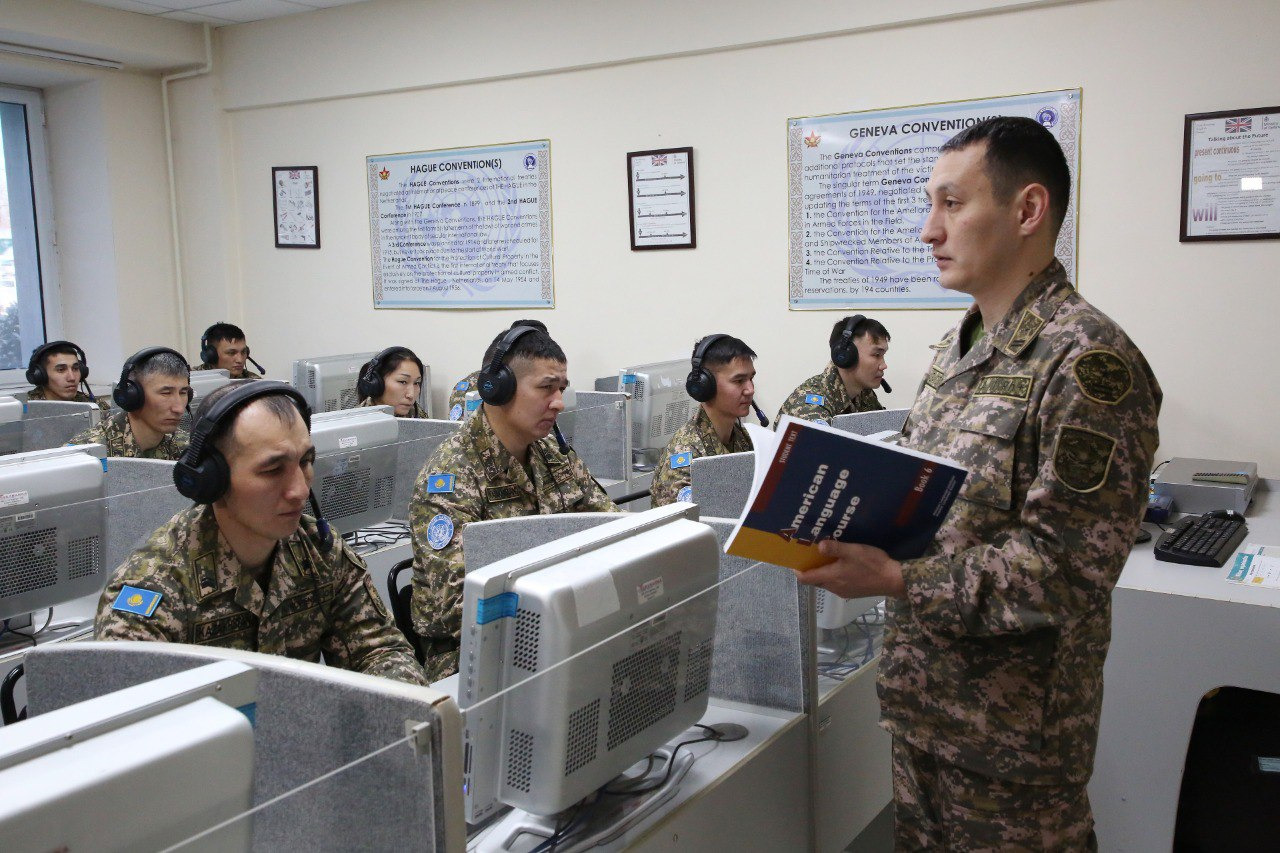
Officers undergo challenging training. Photo credit: KAZCENT
Comprehensive six-month pre-deployment training was organized at KAZCENT, which plays a pivotal role in enhancing peacekeeping capabilities within Kazakhstan and its partner nations. Established under the auspices of the Ministry of Defense, KAZCENT’s primary mission is to provide comprehensive training programs and courses designed to prepare military and civilian personnel for participation in peacekeeping operations conducted under the UN and other international organizations.
The Kazakh officers studied English, the rules of the use of force, and the norms of international and humanitarian law. They were also trained to protect the peacekeeping base, including organizing checkpoints, patrolling, providing assistance, and evacuating. Military decision-making classes were held at the operational and tactical levels.
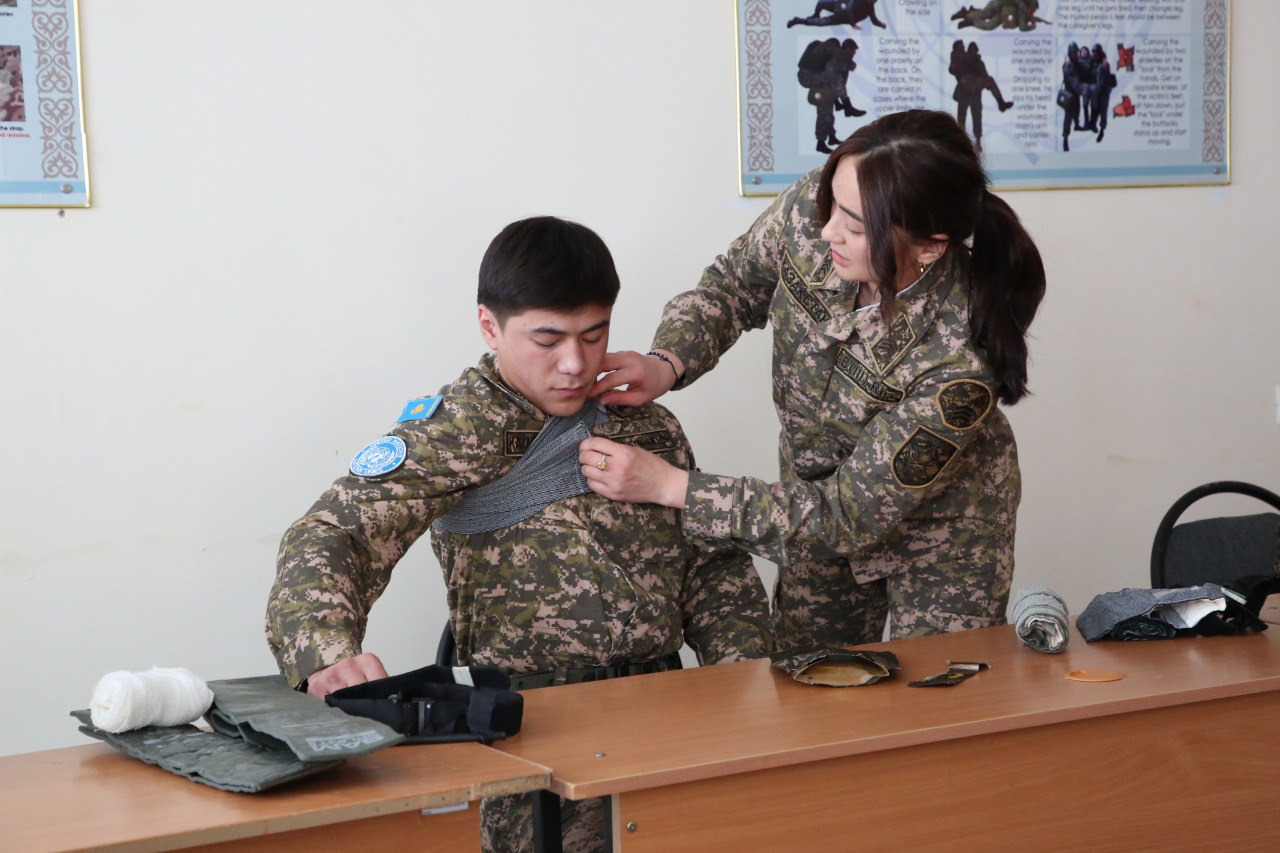
The training also covers training to provide medical aid. Photo credit: KAZCENT
Peacekeepers undergo comprehensive training to prepare them for the mission, including emotionally and mentally, for the challenging environments they will face in the field. They are trained to be resilient and adaptable and have the psychological readiness required for their demanding roles.
“We are trained to meet some potential dangers for our whole life. It is not like you are specially trained, emotionally and mentally. It is not one or two months, it has to be constant [training],” said Nigmetullin.
The courses also enhance the understanding of international humanitarian law, human rights, and the protection of civilians in conflict zones.
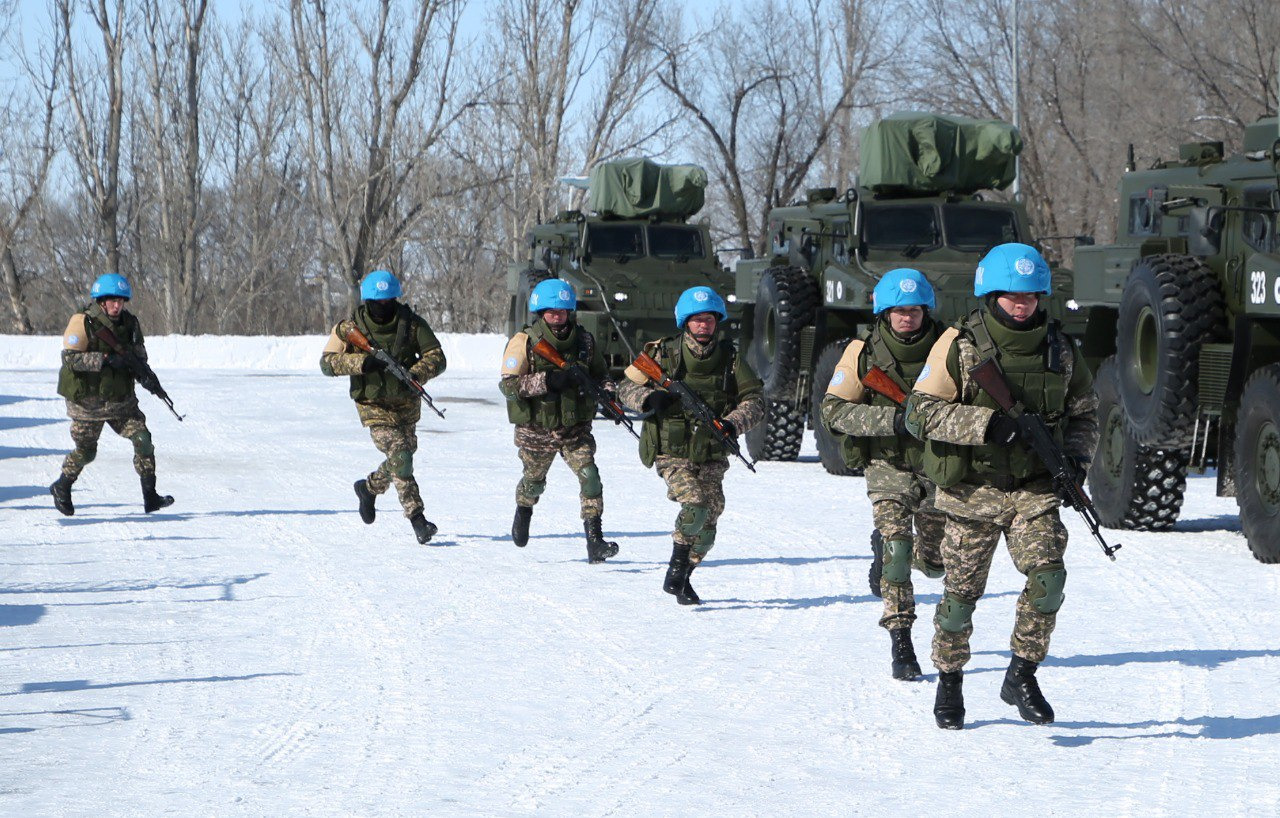
Kazakh peacekeepers. Photo credit: KAZCENT
“We have a few international courses which are recognized by the United Nations. On behalf of the UN, we provide these courses and certification,” he said.
The center has several international partners, including the International Committee of the Red Cross and the UN Department of Peacekeeping Operations.
“Every year, our experts participate in training and courses. We are sending our experts to be guest speakers at different centers as well and then, finally, of course, in the field. We have our training area, Bitimger, which is 15 minutes from Almaty, where we provide tactical training ranging from patrolling to checkpoint observation and protection of civilians,” he said.
Kazakhstan’s steadfast commitment to promoting peace
Kazakhstan’s deployment of its first independent peacekeeping mission to the Golan Heights reflects the country’s decades-long efforts to advocate for peace and stability on the international stage.
“Since gaining independence, we have been an important player on the international stage, providing a contribution to regional and international peace and stability,” said Nigmetullin.
The deployment of the contingent will also advance the nation’s military potential and allow soldiers to gain new experience.
“Using equipment, new transport, and ammunition. [It is] also for human capital because our soldiers (…) could share experience and learn from each other,” he said.
Kazakhstan has been building its peacebuilding capacity for many years. According to the official data from the ministry, over the past 16 years, more than 600 Kazakh service officers have participated in seven UN peacekeeping missions in Asia, the Middle East, and Africa. Nineteen are now serving in the UN peacekeeping missions in the Lebanese Republic, Western Sahara, the Democratic Republic of the Congo, and the Central African Republic.
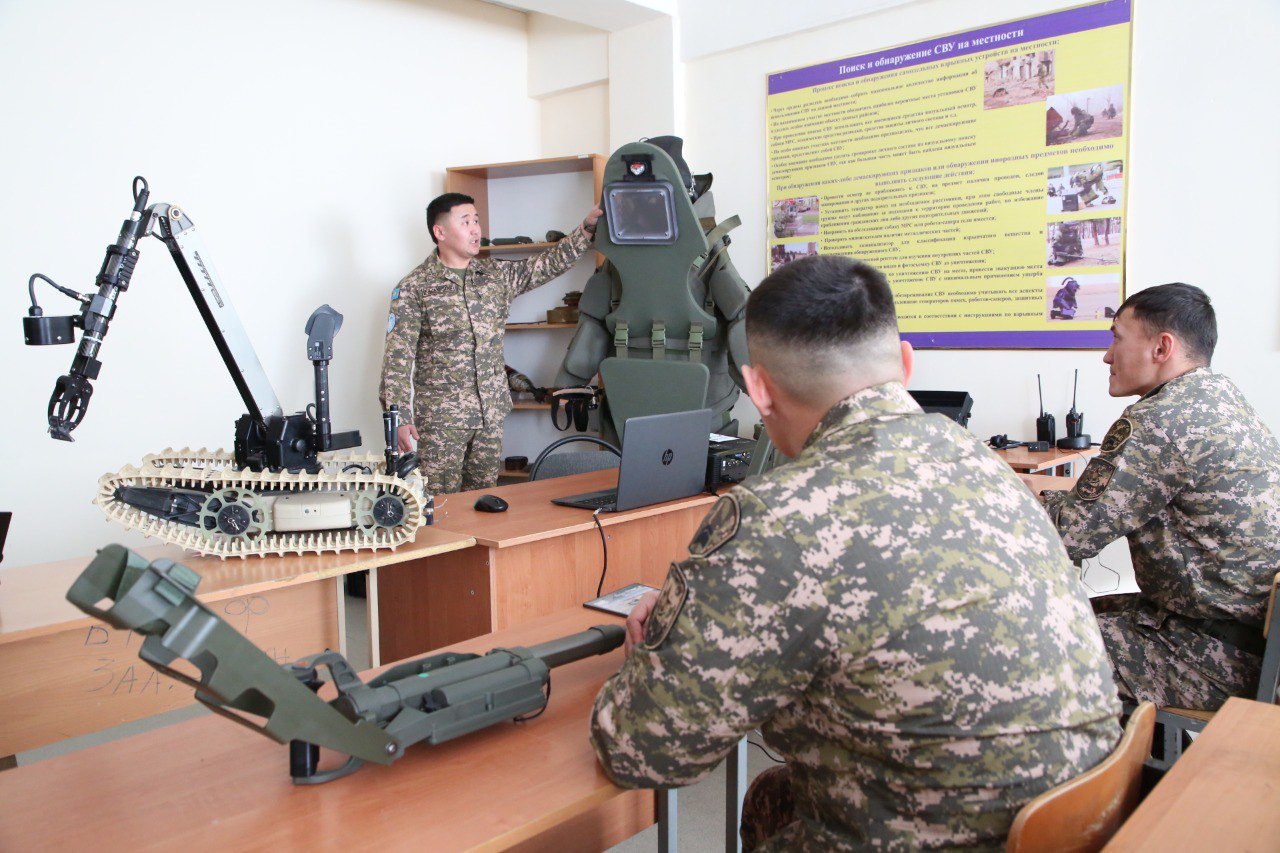
Kazakh officers at the center. Photo credit: KAZCENT
“From a historical point of view, we have been on the Afghan and Tajik border, Iraq, and Africa, where we sent our experts. Recently, we have been in Lebanon under the Indian battalion [referring to The United Nations Interim Force in Lebanon]. After many years, we started thinking we should send a fully equipped, self-sufficient company ourselves, which is very challenging both logistically and in terms of transportation,” he explained.
In December, experts from the UN commended the level of training of Kazakh officers. During one week, UN experts led by Cédric Pascal, planning officer for the troop formation service of the UN Department of Peacekeeping Operations, checked the equipment of the peacekeepers, the availability of equipment, weapons, ammunition, clothing, engineering, medical equipment, and NBC (nuclear, biological, chemical) protective equipment.
“Happily, we received a very high result in the report that officially declares our standards are above those of the UN standards,” he said.
Advice to peacekeepers
When asked what advice he would give to new peacekeepers, Nigmetullin emphasized the importance of professionalism. “Behave as a professional military because you represent our country,” he added. “Always work on improving your language skills. Most importantly, follow UN conduct and discipline. We have ten rules that every peacekeeper must obey. Just follow these rules and be exemplary military personnel.”

